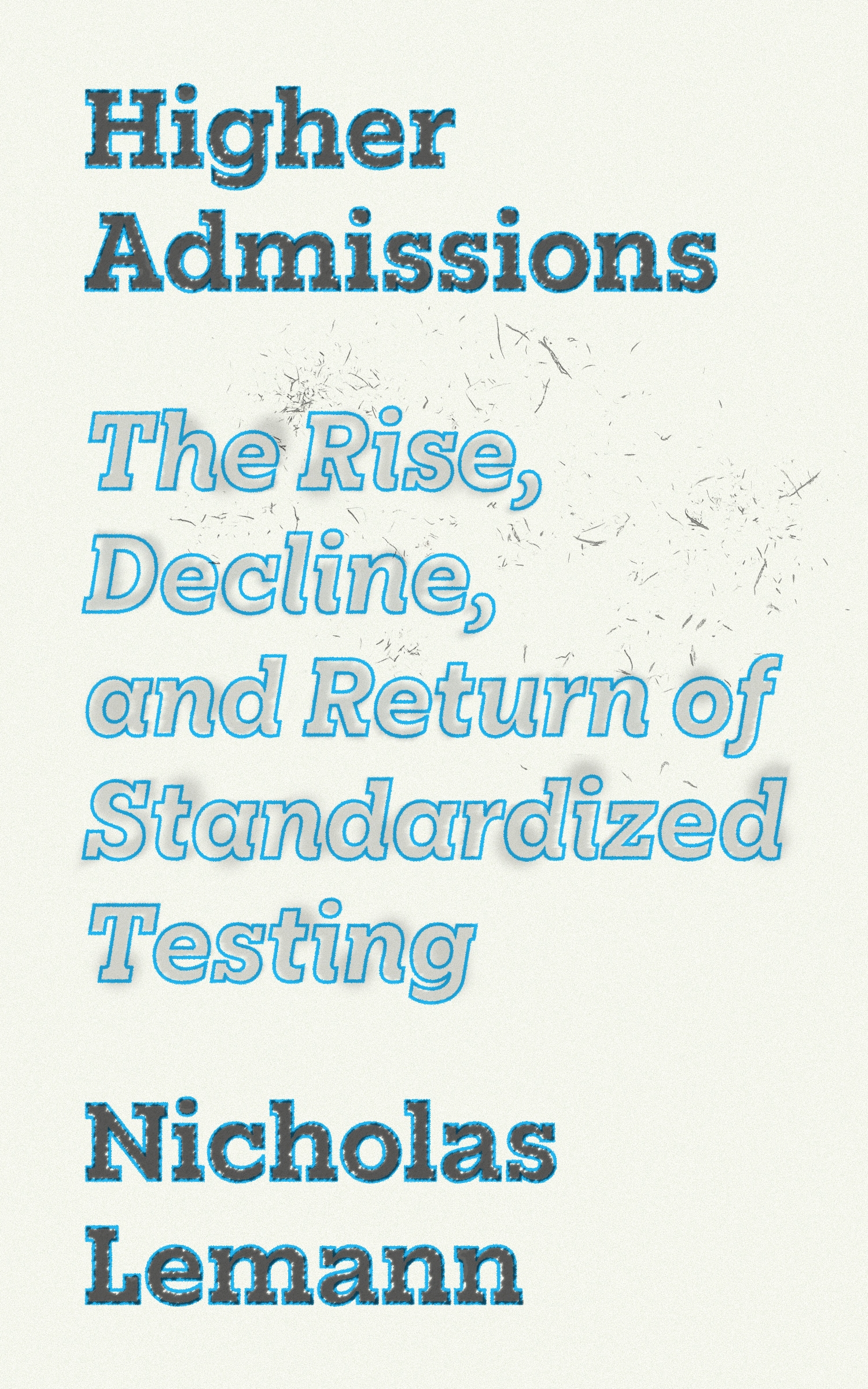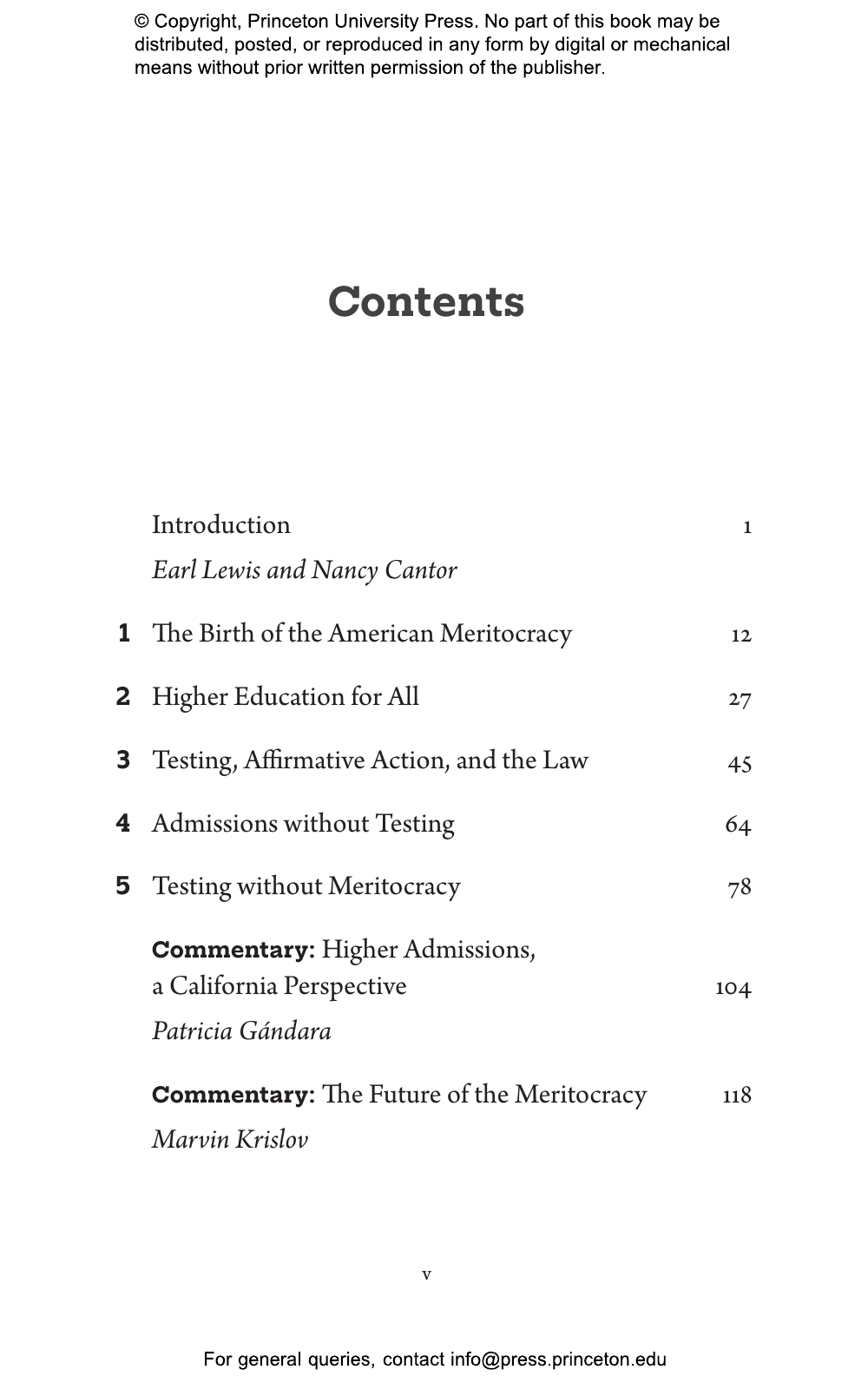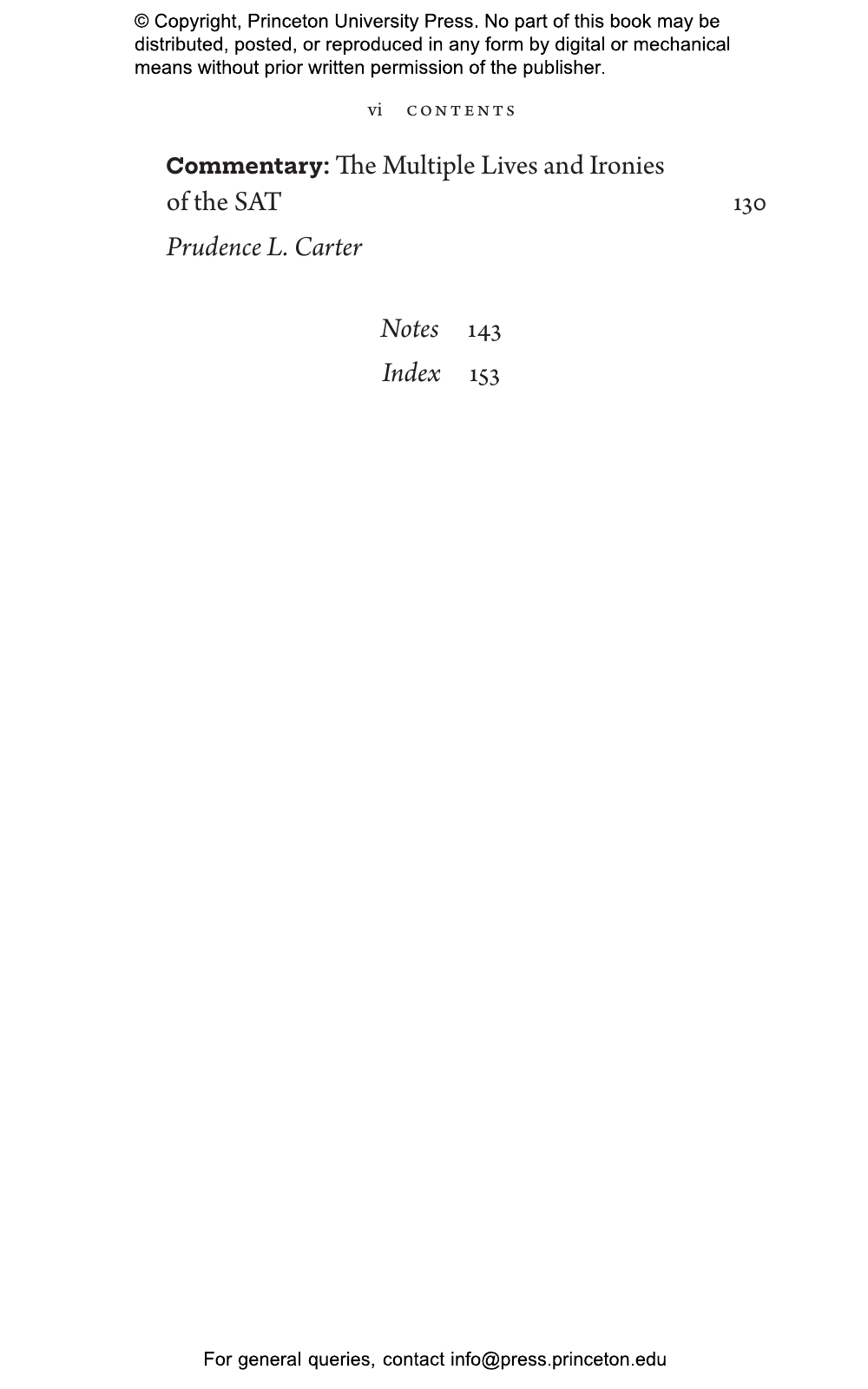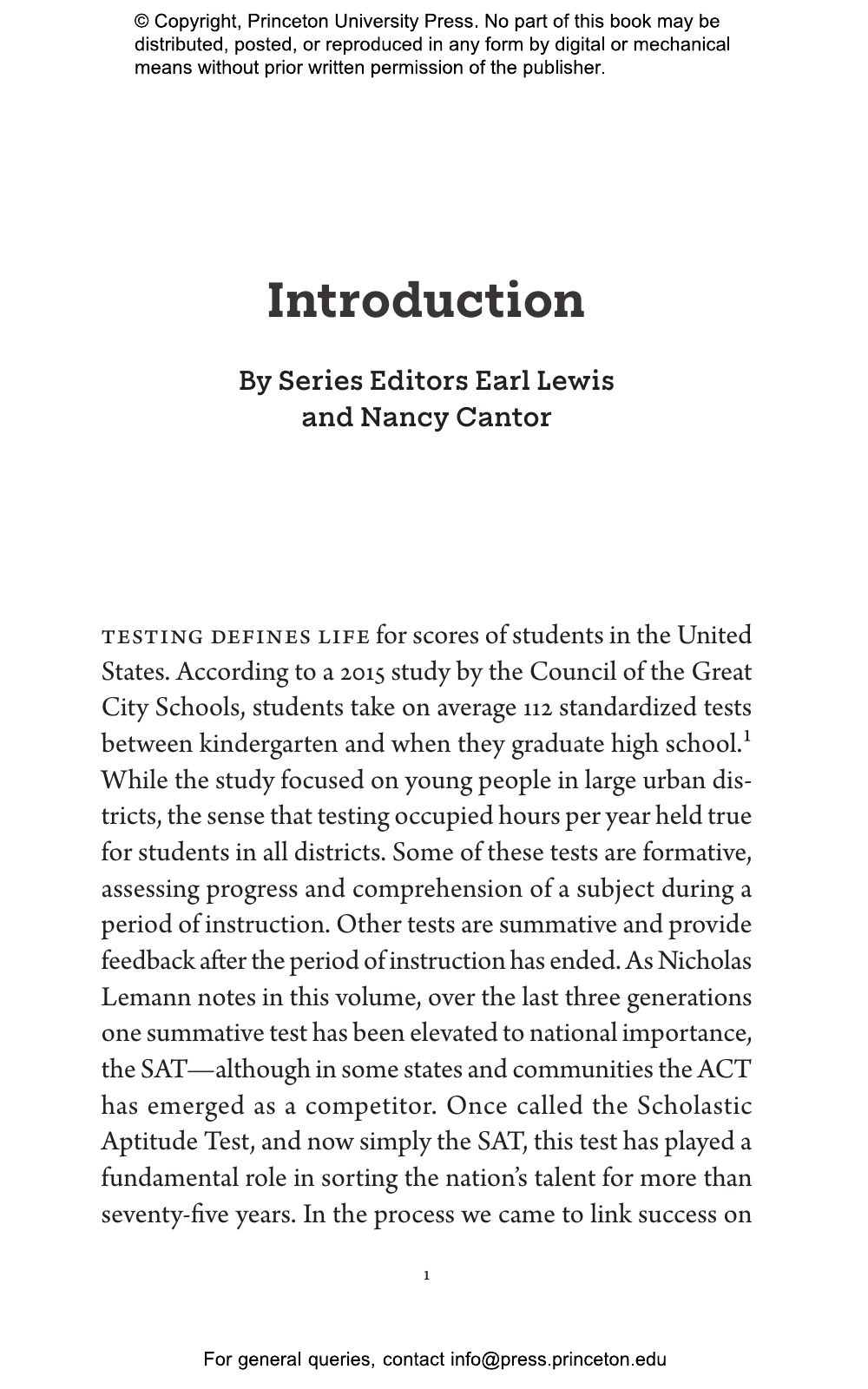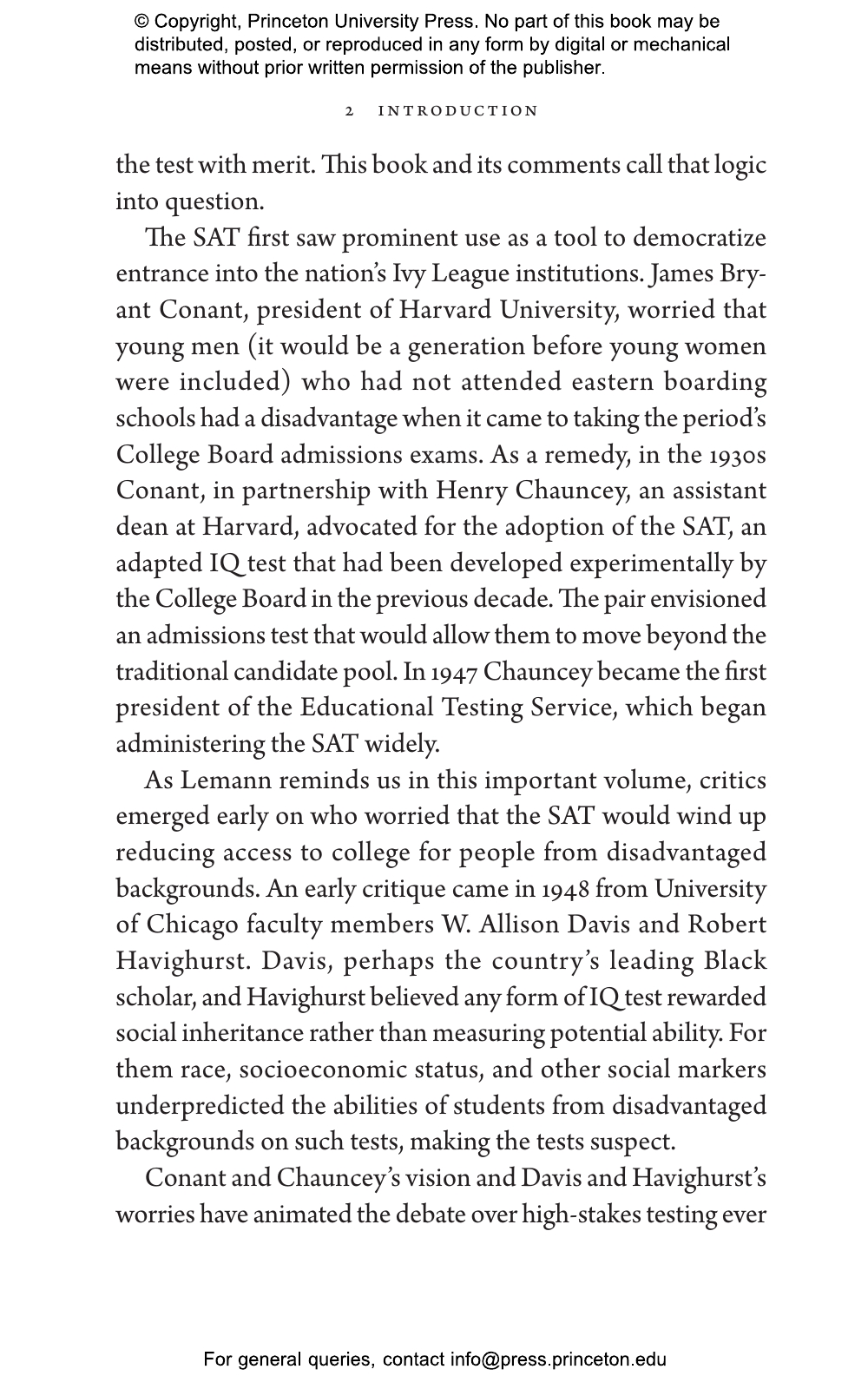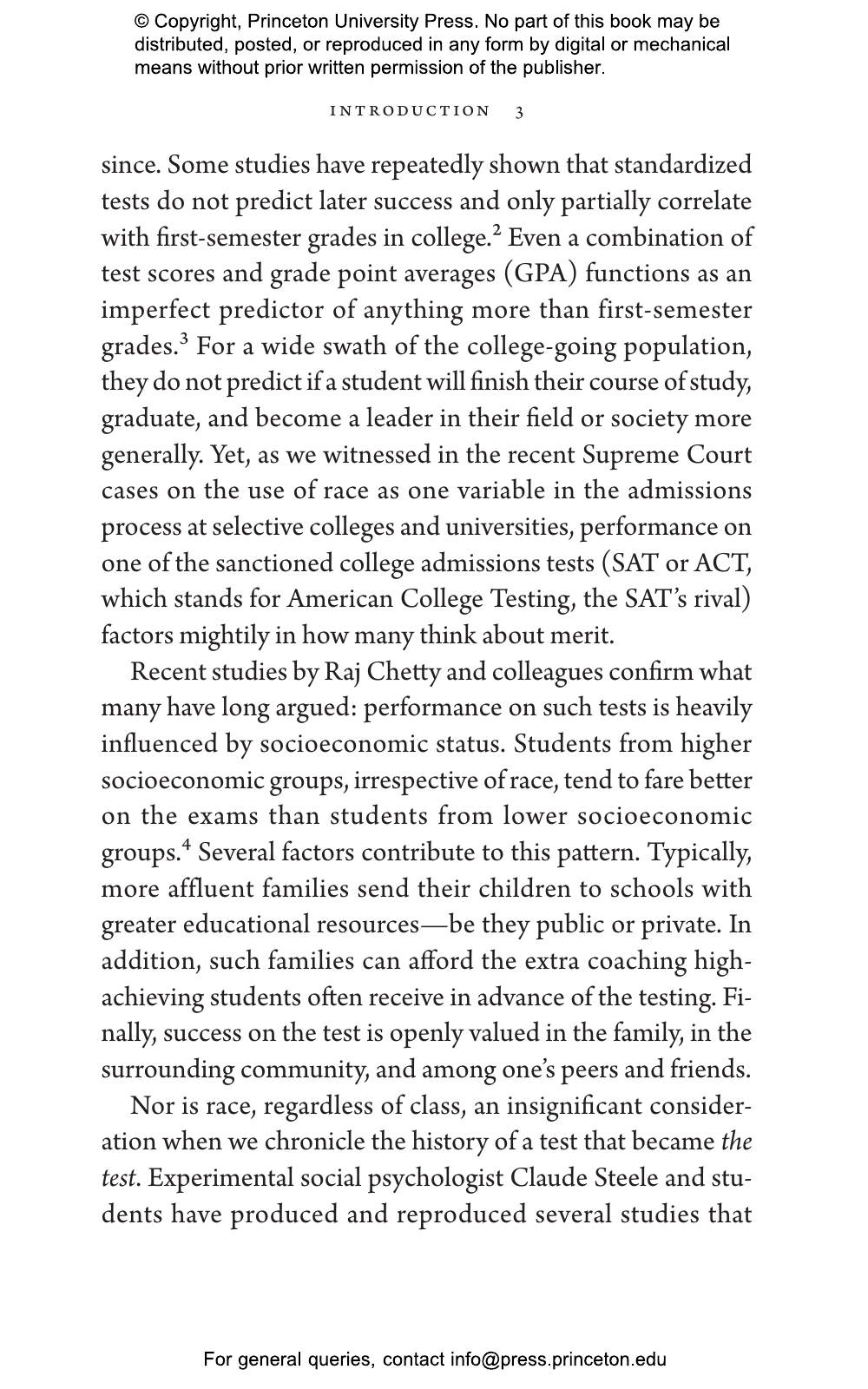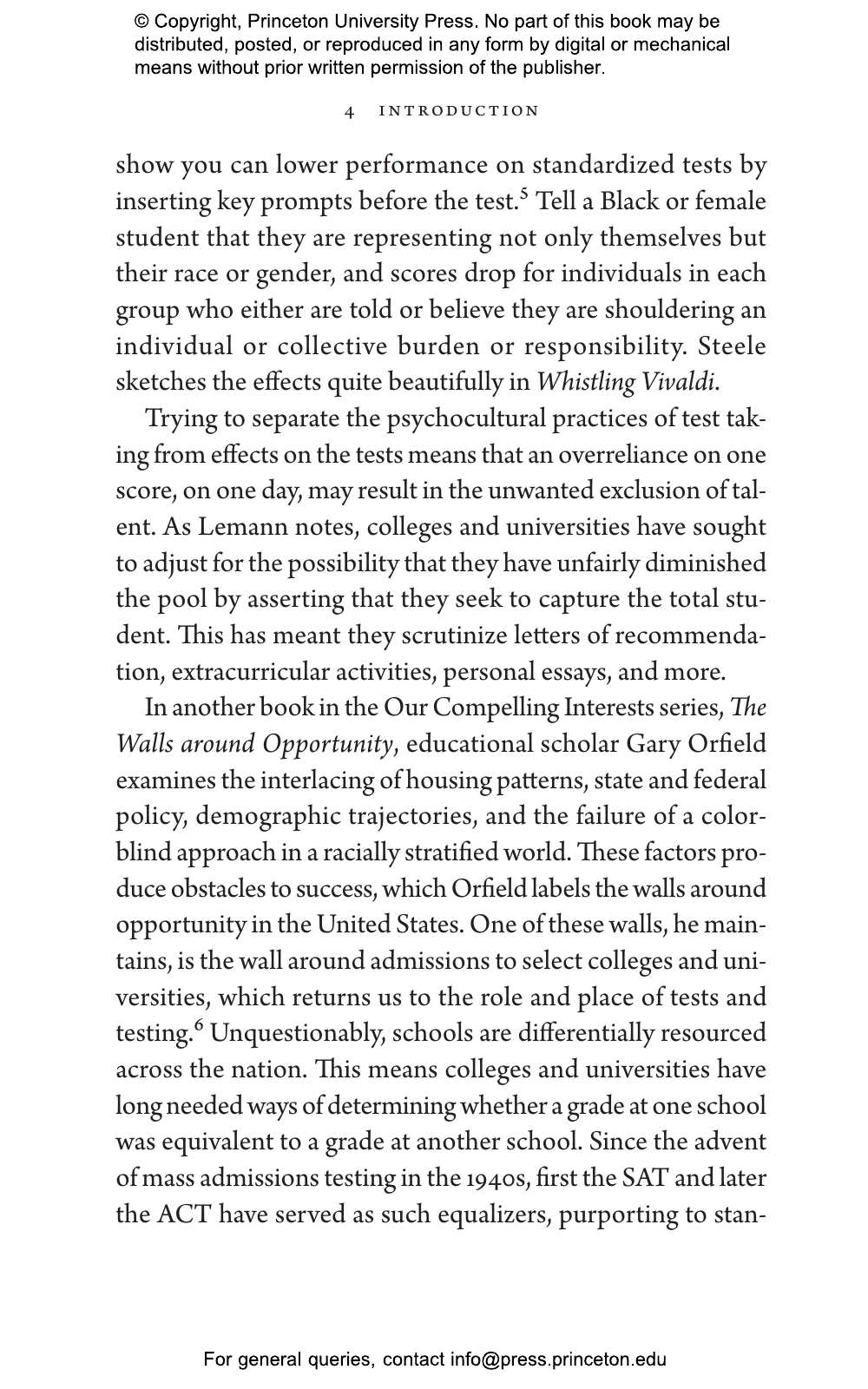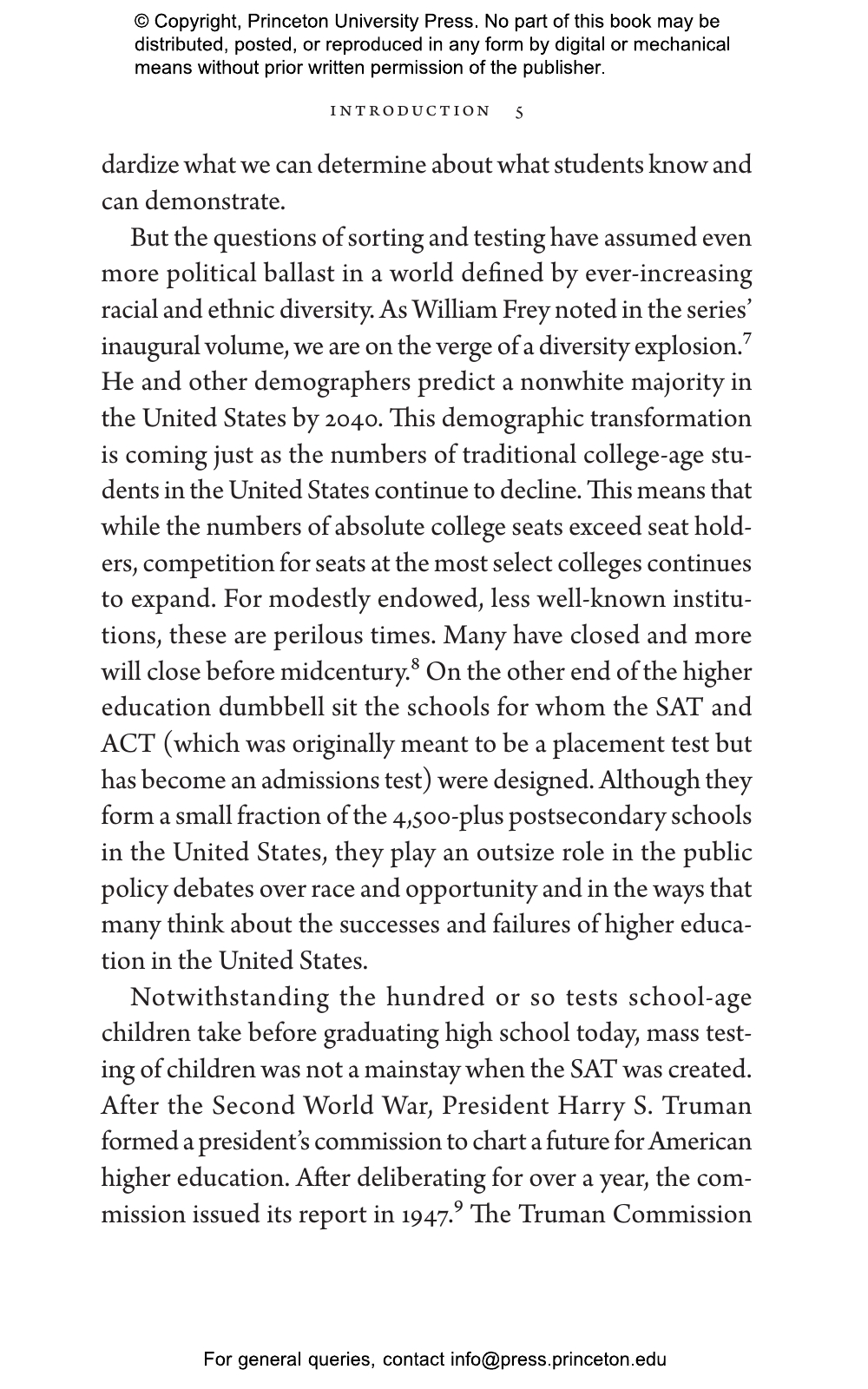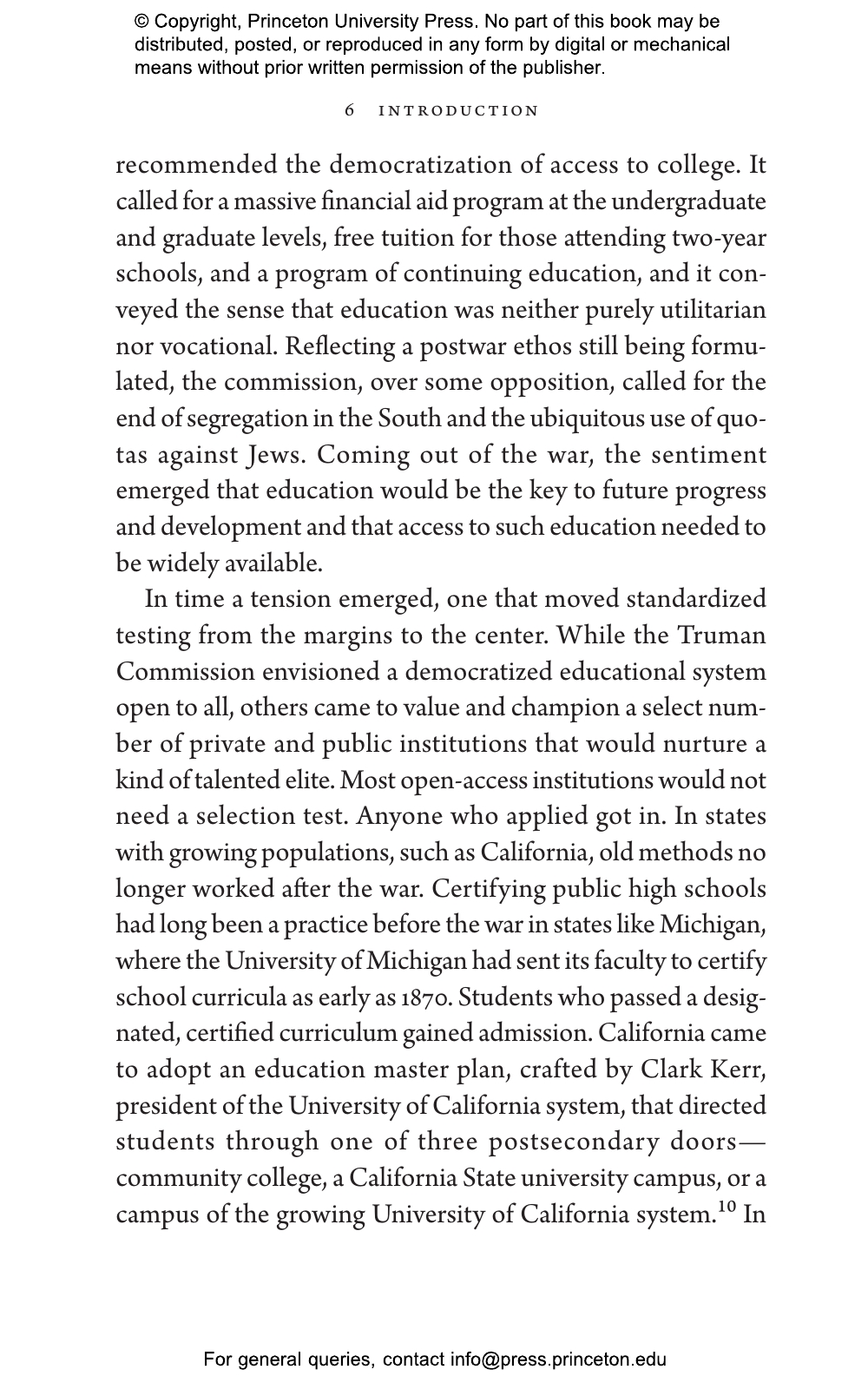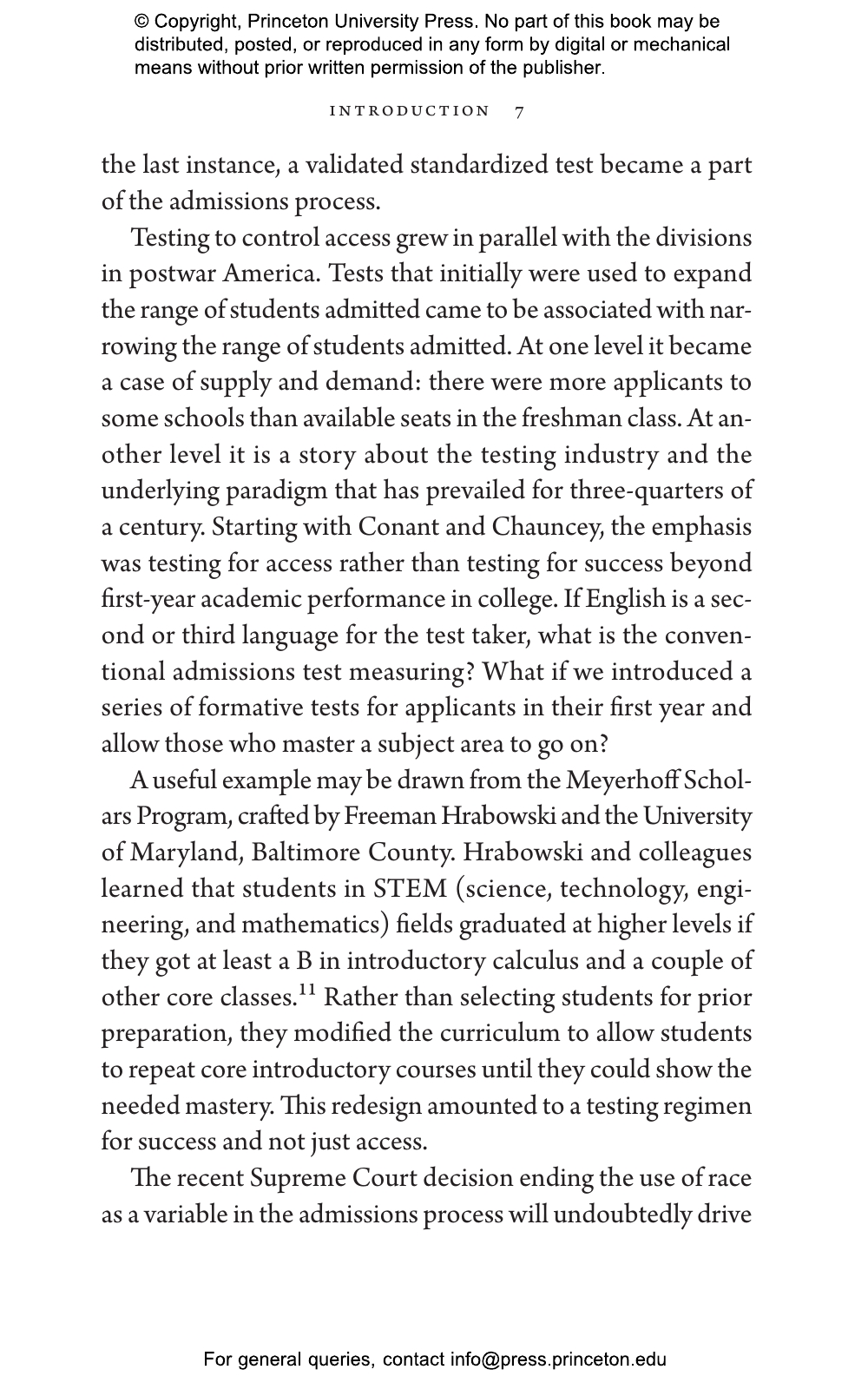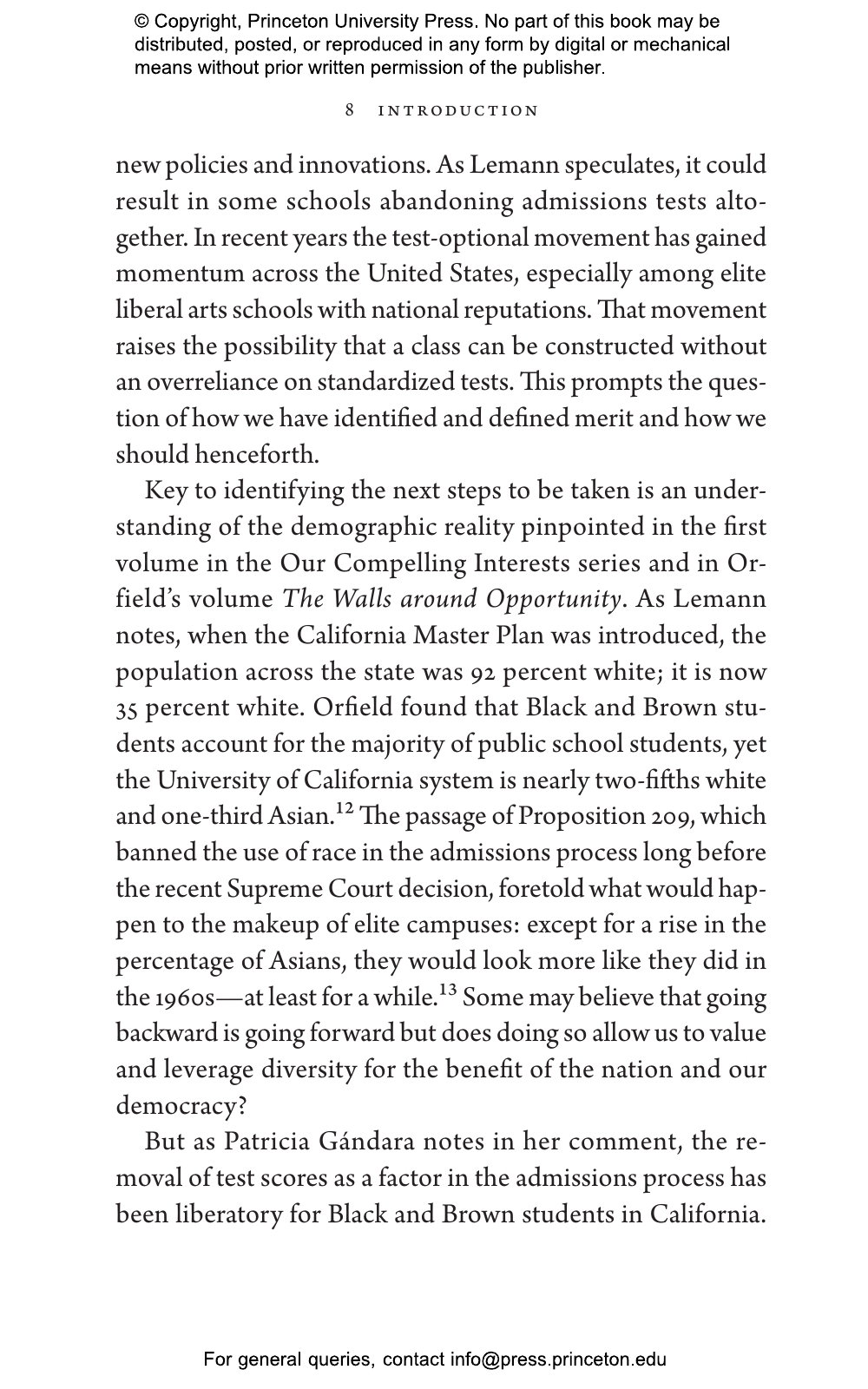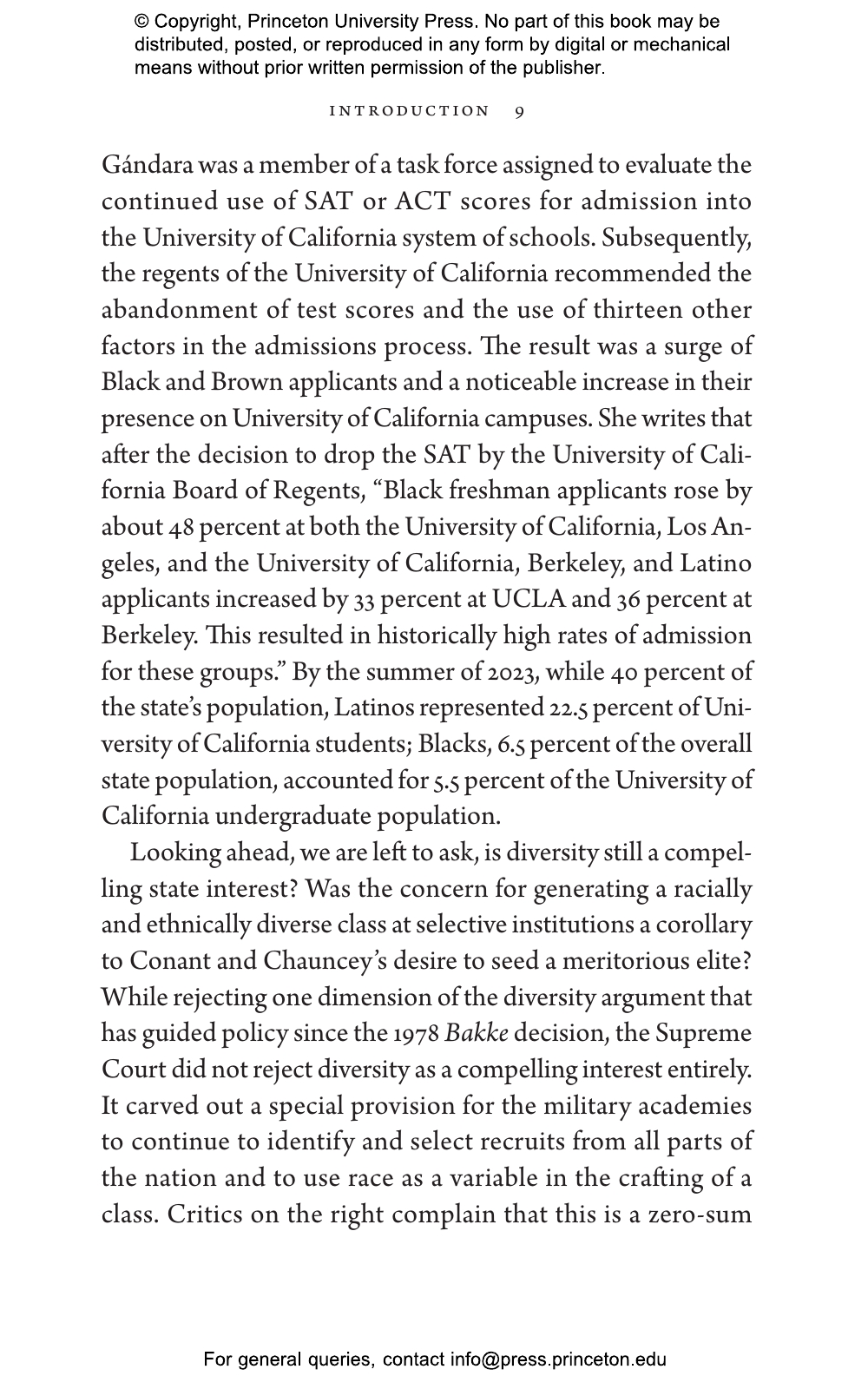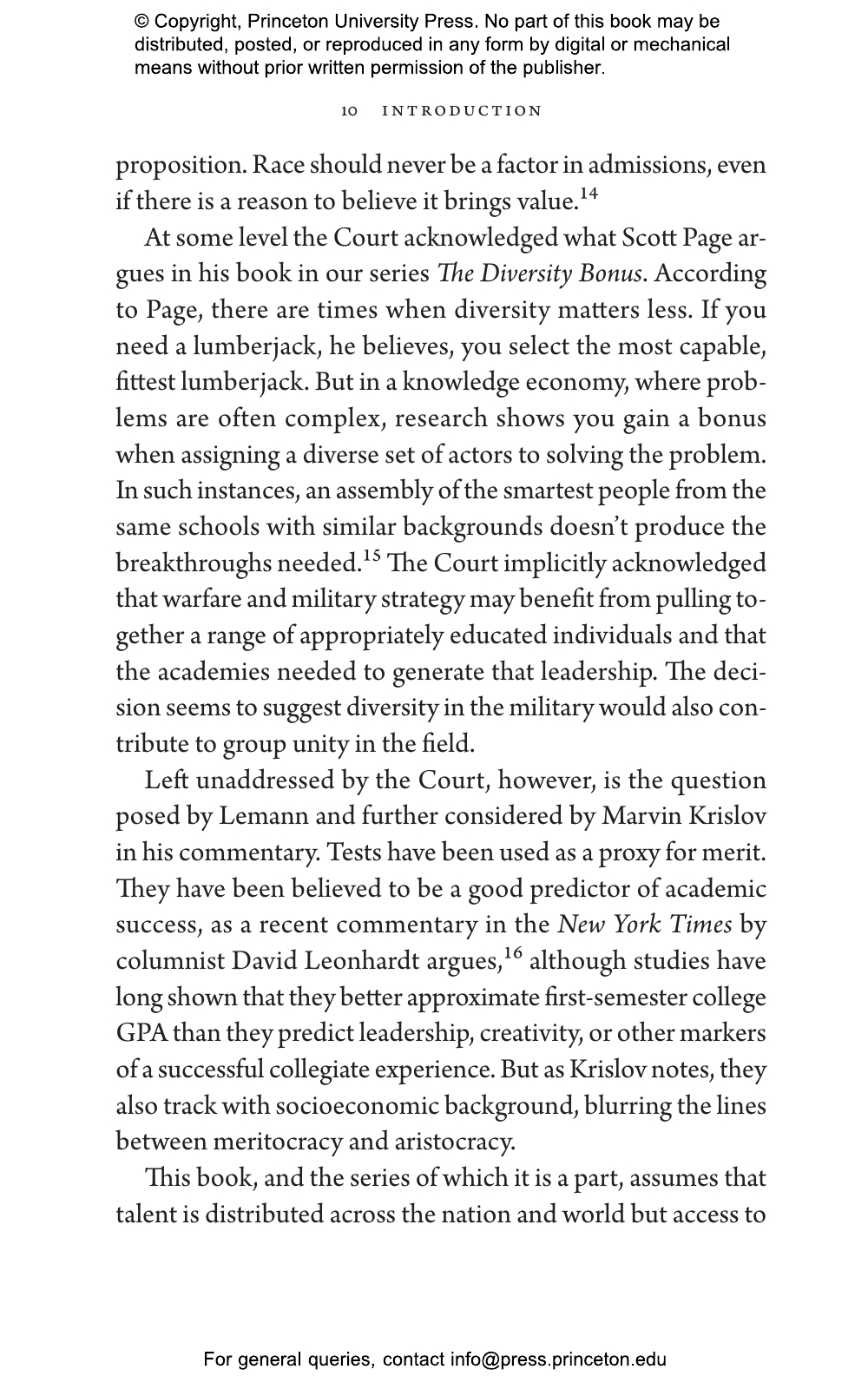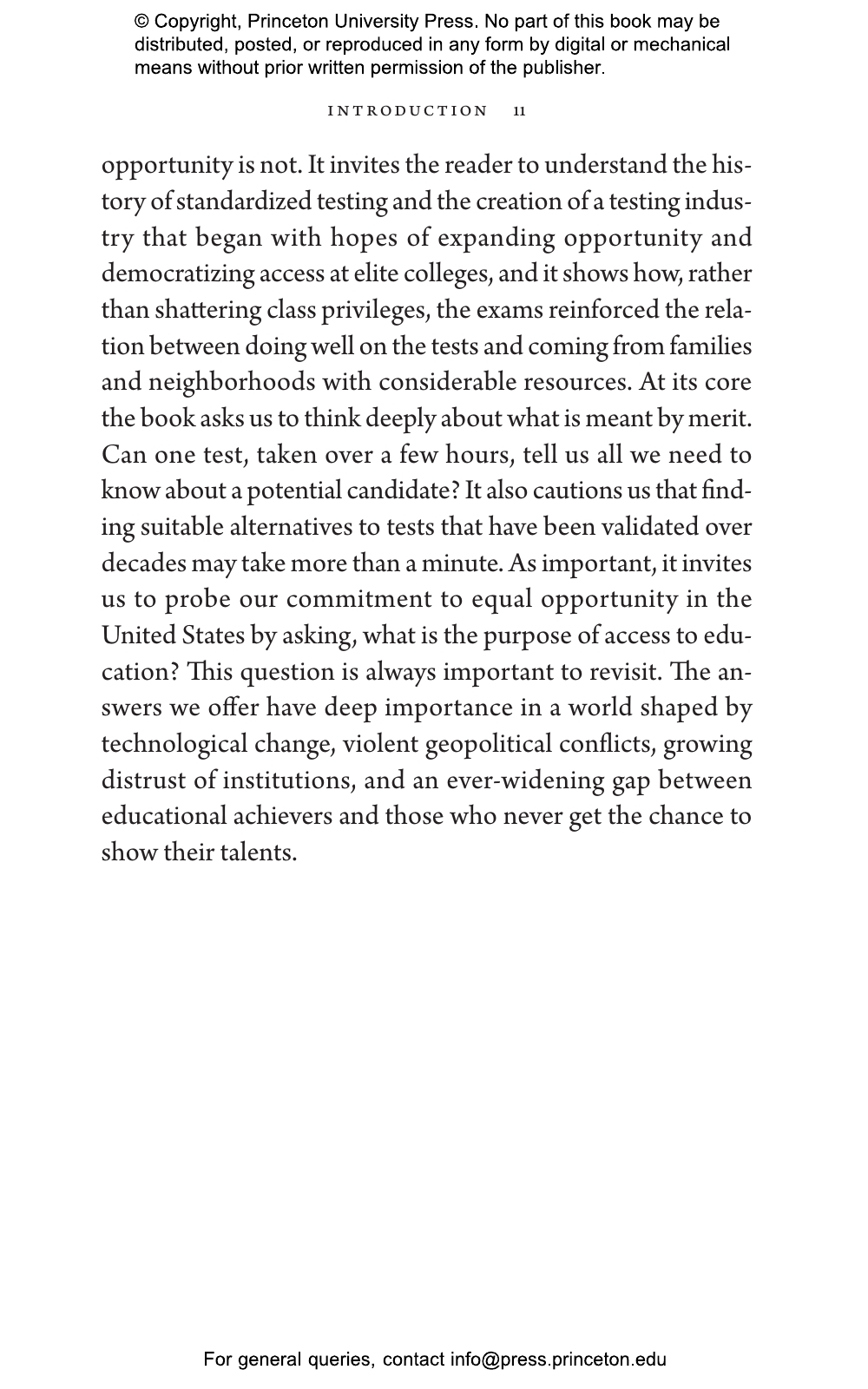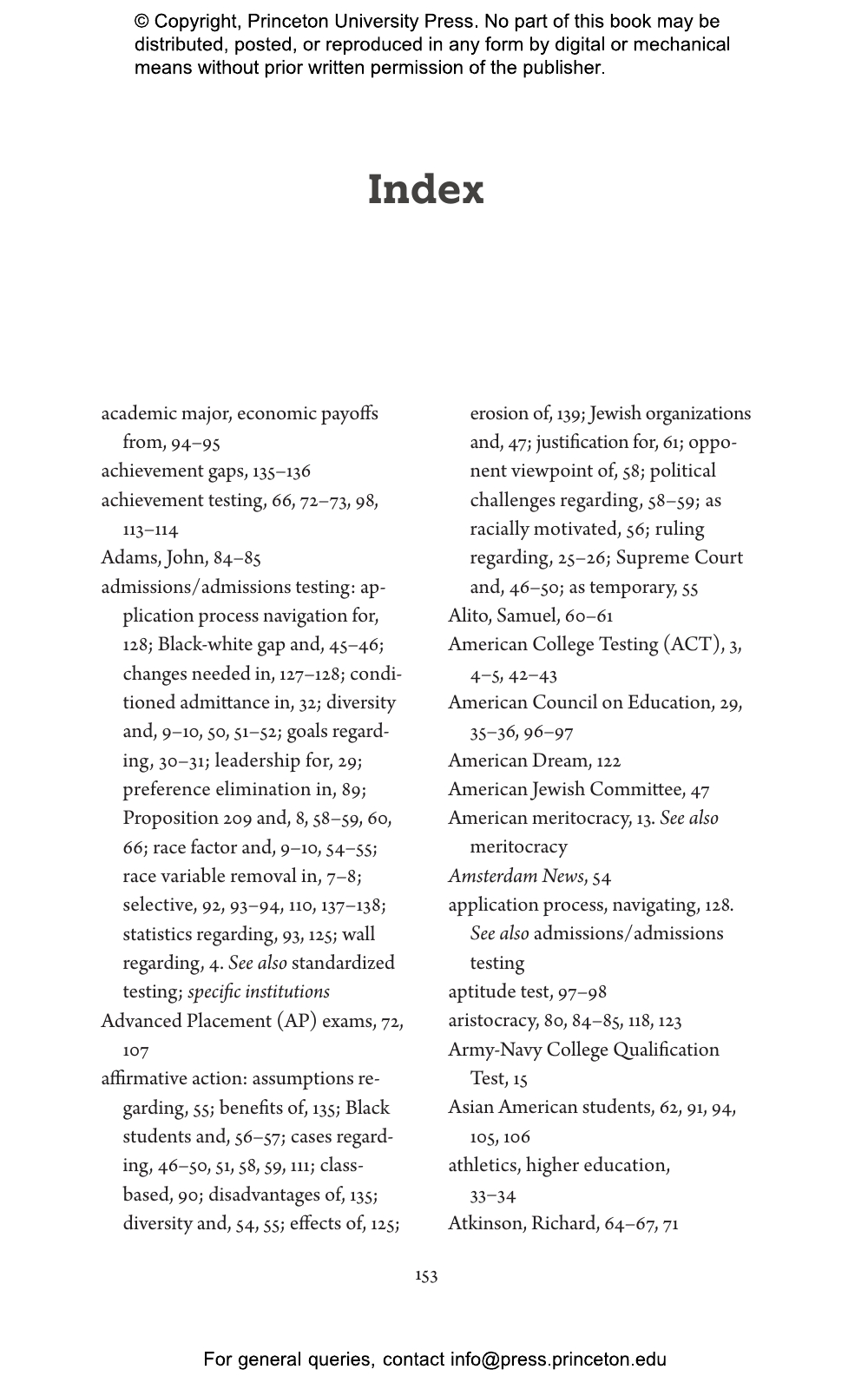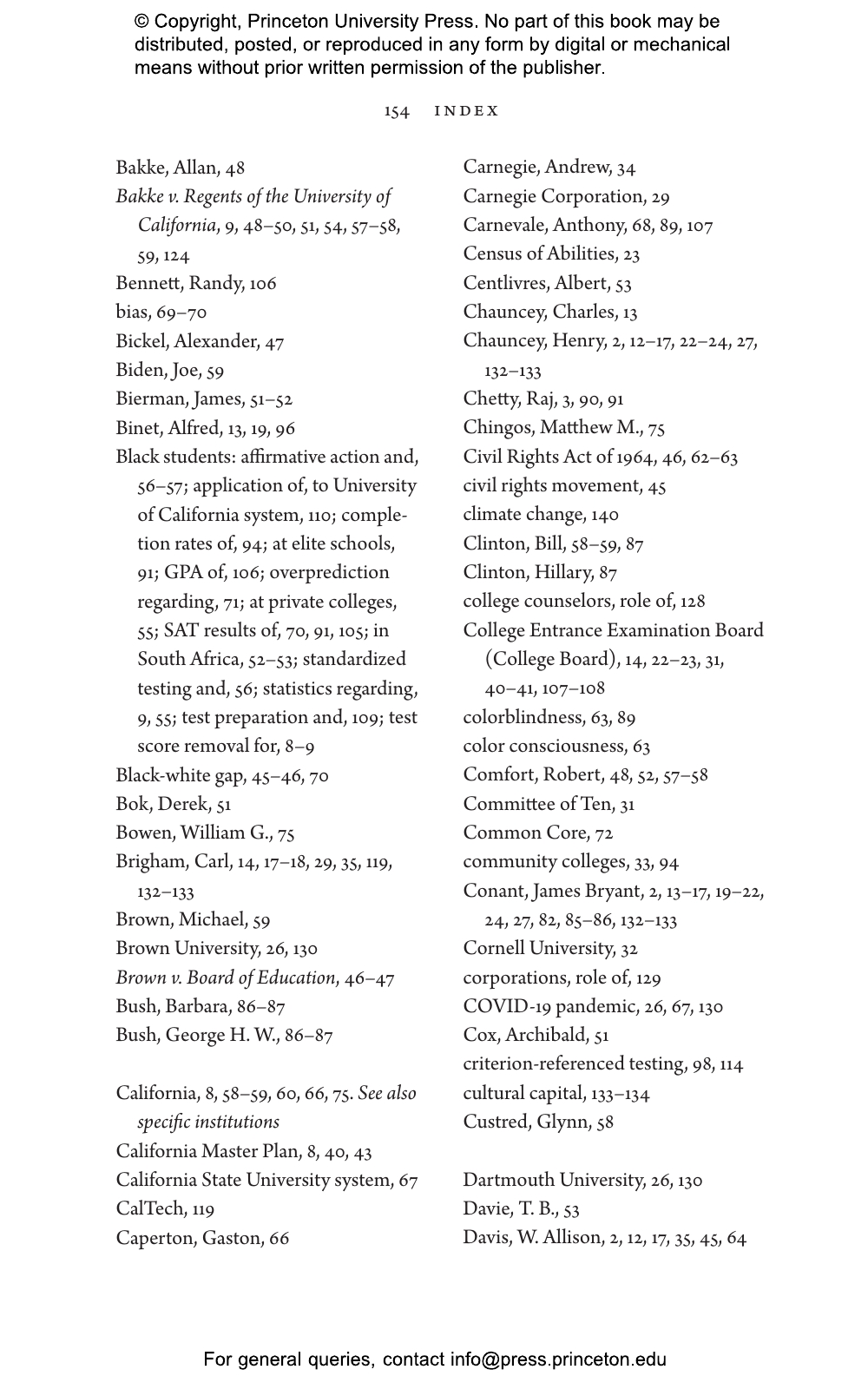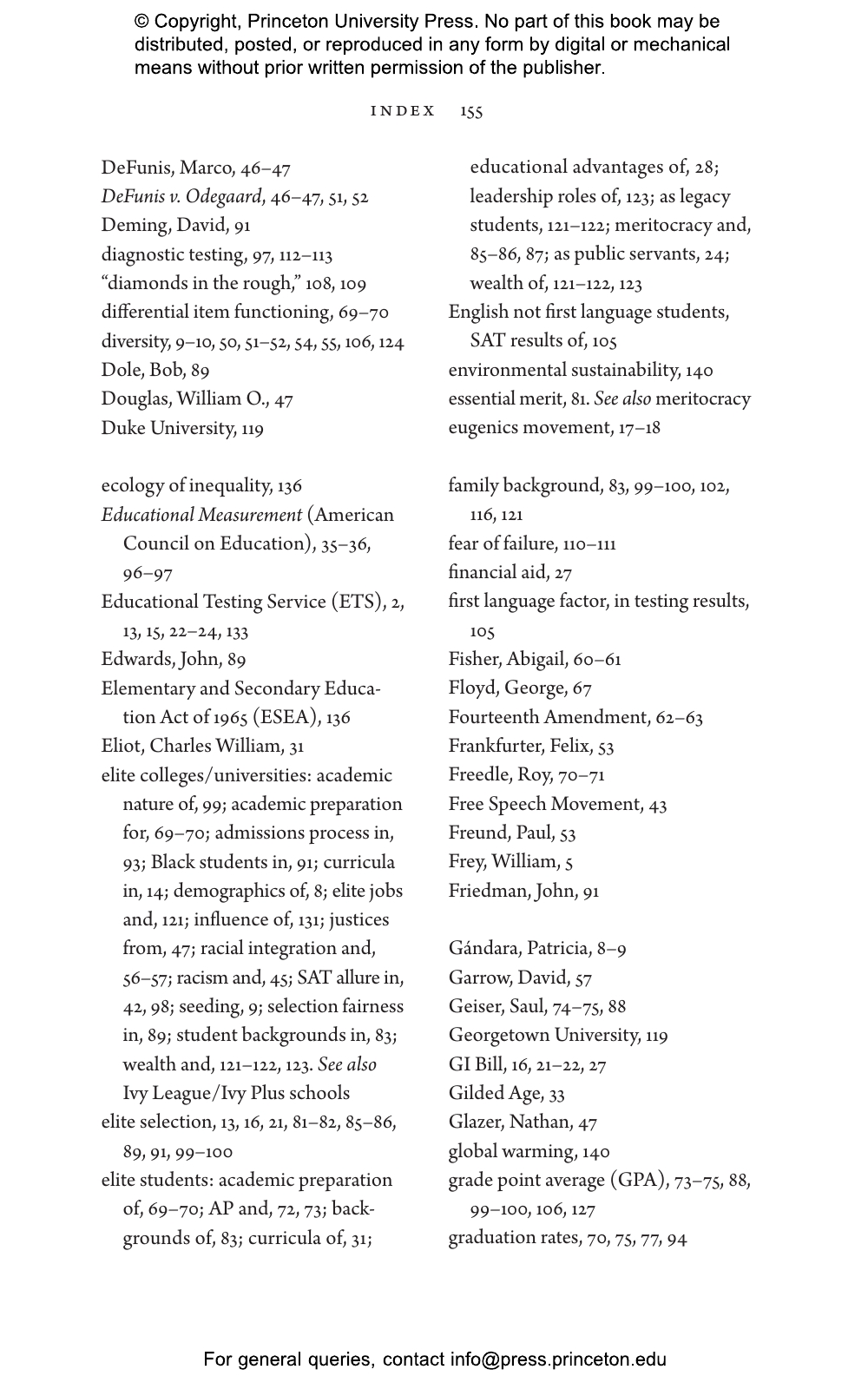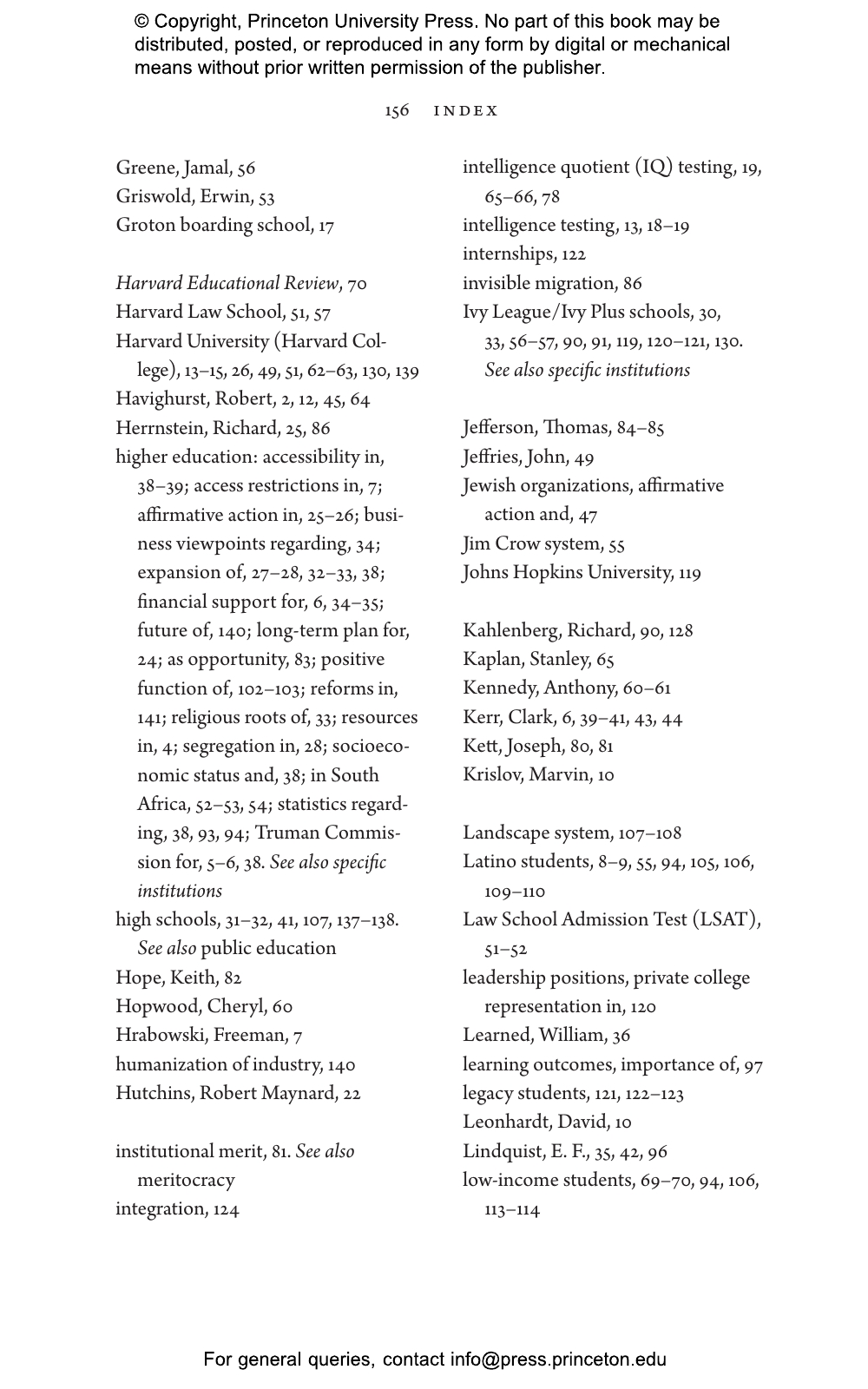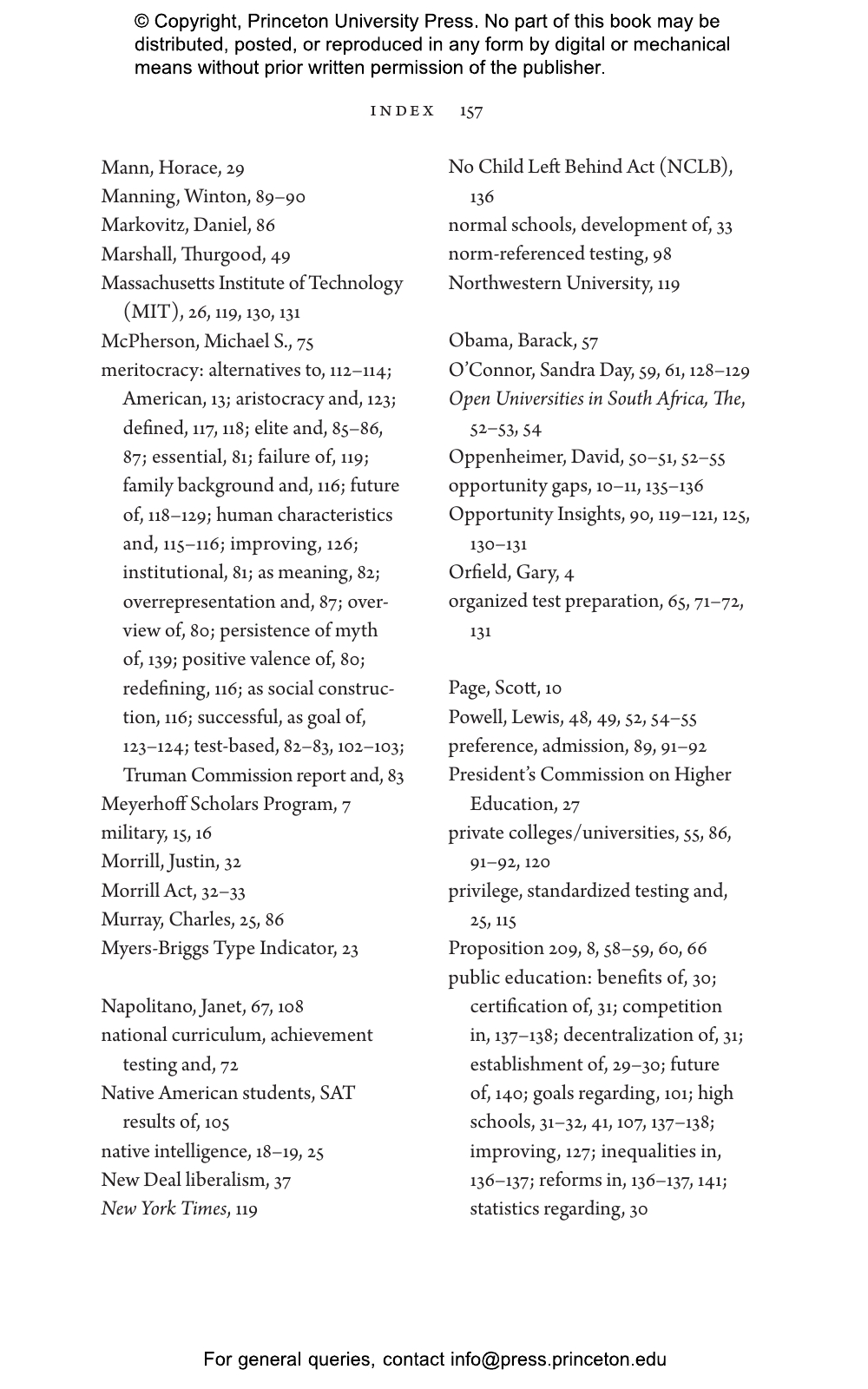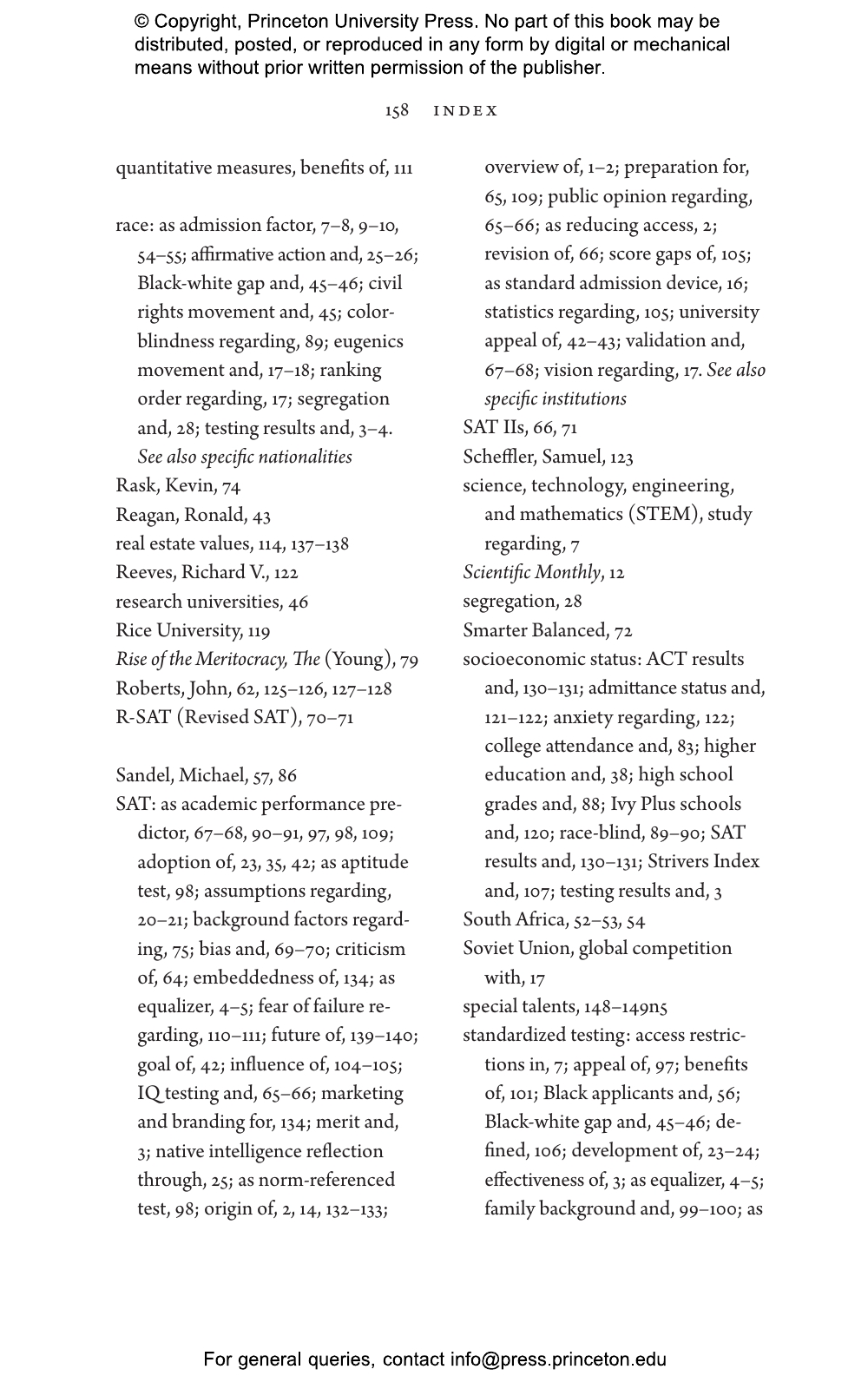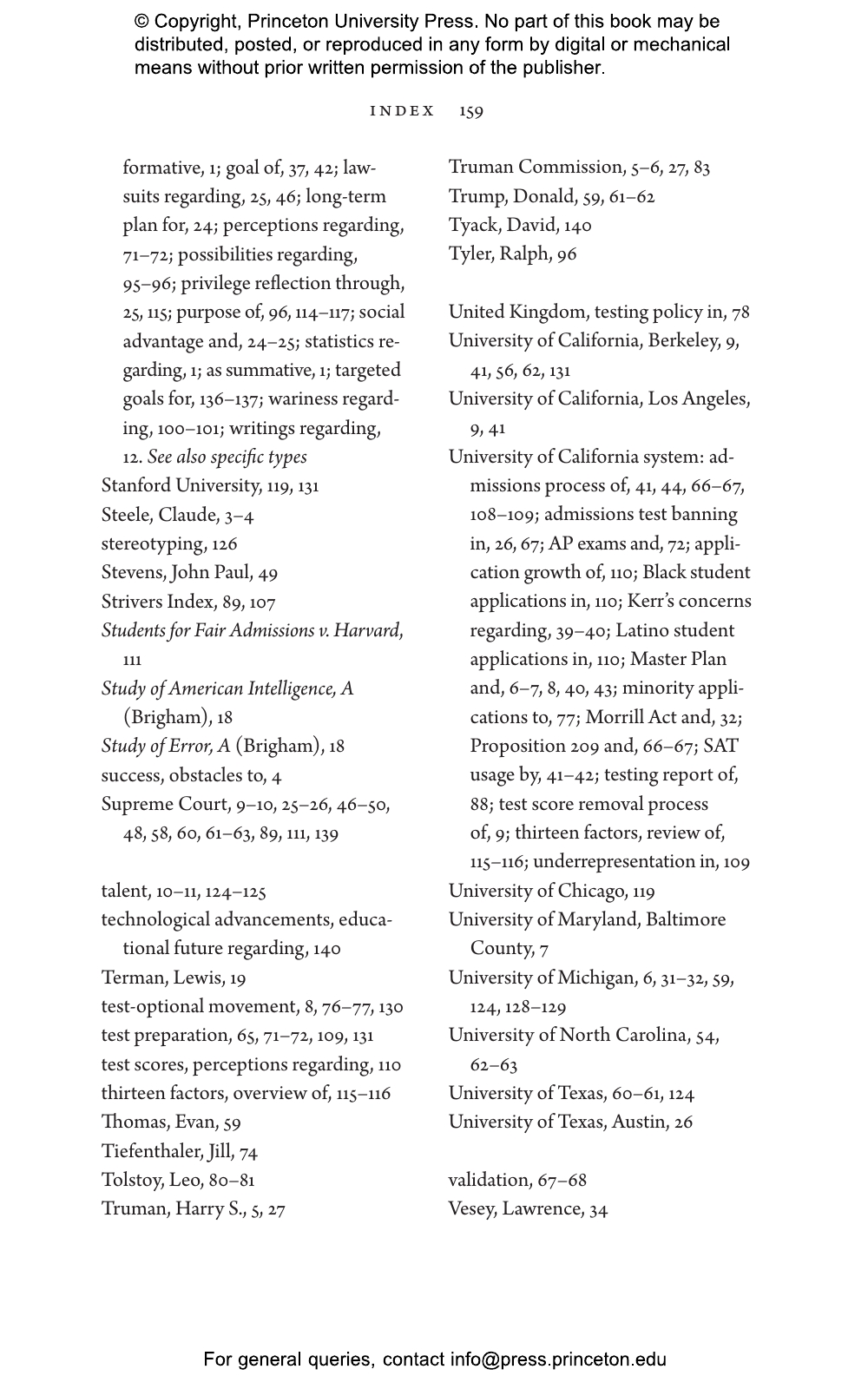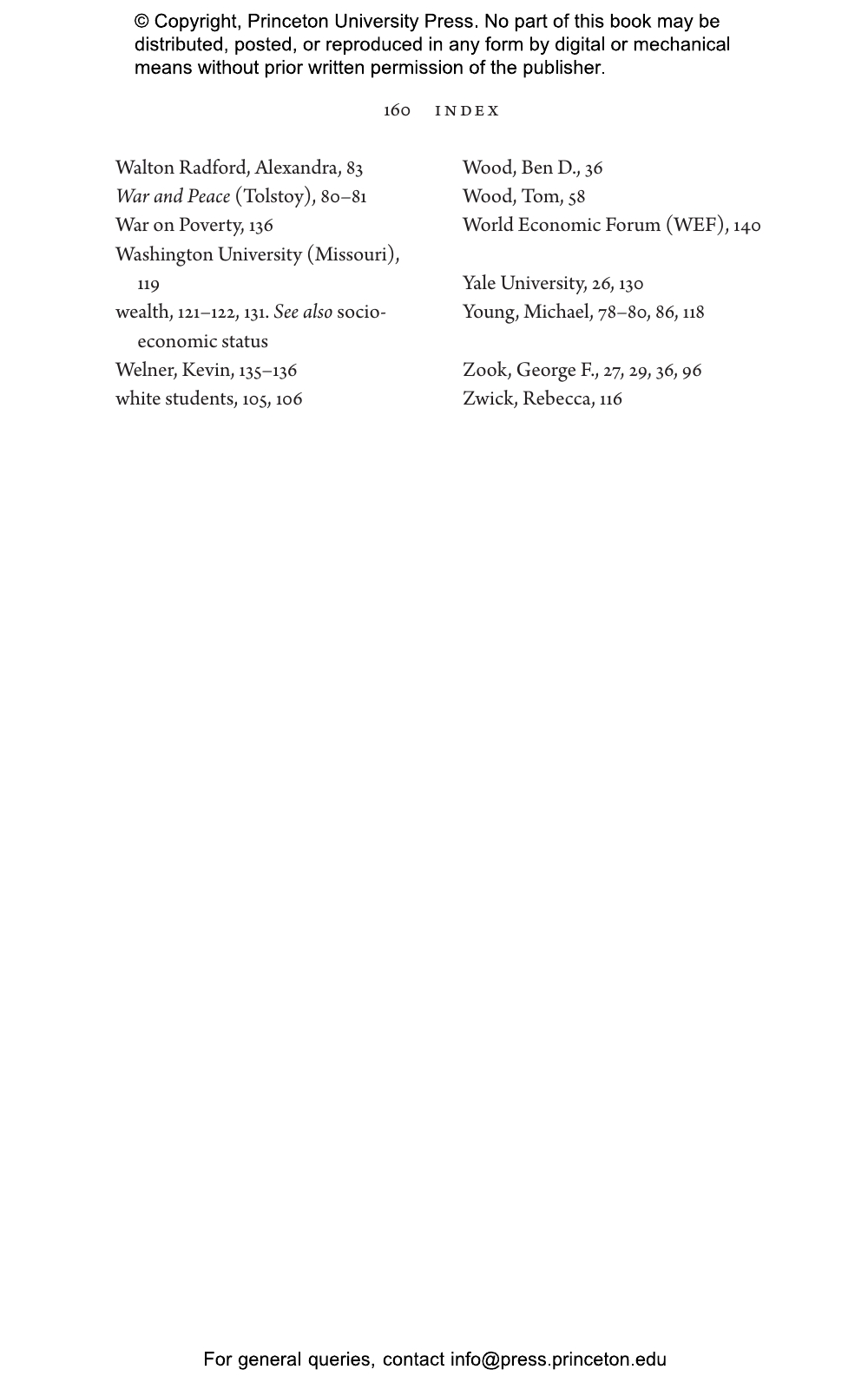In the 1930s, American colleges and universities began to screen applications using the SAT, a mass-administered, IQ-descended standardized test. The widespread adoption of the test accompanied the development of the world’s first mass higher education system—and served to promote the idea that the United States was becoming a “meritocracy” in which admission to selective higher education institutions would be granted to those who most deserved it. In Higher Admissions, Nicholas Lemann reflects on the state of America’s aspirational meritocracy and the enduring value and meaning of standardized testing.
Lemann writes that the anticipation of the Supreme Court’s 2023 decision banning affirmative action, plus the Covid pandemic, led hundreds of universities to stop requiring standardized admissions tests; now many colleges and universities are reinstituting test requirements. The country is preoccupied with the admissions policies of the most selective universities, but Lemann redirects our attention to an alternate path that American higher education could have taken, and can still take—one that emphasizes selective admission less and a significant upgrade of the entire higher education system more. Lemann argues that to improve the state of higher education overall, we should focus not on the narrow chokepoint of admission to highly selective colleges, but on efforts to create as much meaningful opportunity for flourishing in our vast higher education system for as many people as possible. The book includes thoughtful and challenging responses from Marvin Krislov, Patricia Gándara, and Prudence Carter.
Awards and Recognition
- A Forbes Best Higher Education Book
Nicholas Lemann is a staff writer at the New Yorker and dean emeritus of the Graduate School of Journalism at Columbia University, where he is the Joseph Pulitzer II and Edith Pulitzer Moore Professor of Journalism. He is the author of Transaction Man: The Rise of the Deal and the Decline of the American Dream, The Big Test: The Secret History of the American Meritocracy, and other books.
"With some selective colleges and universities reinstating the standardized SAT as an admissions criterion (after dropping the requirement during the Covid-19 pandemic) and with the Supreme Court ruling against affirmative action, [Lemann’s] examination [of the SAT] is timely. . . . A well-informed critique."—Kirkus Reviews
“For anyone interested in the status of testing in American higher education, Nicholas Lemann has provided a masterful synthesis of the relevant— and sometimes surprising—historical, political, economic, institutional, and personal factors.”—Howard Gardner, Harvard Graduate School of Education
“Questions about the SAT abound: Can we constructively use it in college admissions without unfairly discriminating against swaths of our diverse population? Did our retreat from it during the pandemic prove we don’t need it? Is it critical to finding ‘diamonds in the rough’ for college admissions? No one has a deeper, more comprehensive grasp of this test—its history, uses, and capacities—than Nicholas Lemann. His new book, in taking up these questions and more, is a welcome and truly exciting arrival—a must-read for all educators and, I hope, many Americans.”—Claude Steele, Stanford University
“With this slim but powerful volume, Nicholas Lemann and his interlocutors contextualize current debates about the value of the SAT/ACT in selective college admissions as well as their influence on American ideas of merit. This searing account encourages readers to ask what alternative futures, with or without standardized testing involved, we might envision for a more just and democratic higher education system.”—Rachel Gable, author of The Hidden Curriculum: First Generation Students at Legacy Universities
This publication has been produced to meet accepted Accessibility standards and contains various accessibility features including a table of contents, a page list to navigate to pages corresponding to the print source version, and elements such as headings for structured navigation. Appearance of the text and page layout can be modified according to the capabilities of the reading system.
Accessibility Features
-
WCAG v2.2
-
WCAG level AA
-
Table of contents navigation
-
Print-equivalent page numbering
-
Next / Previous structural navigation
-
Landmark navigation
-
Index navigation
-
Epub Accessibility Specification 1.1
-
ARIA roles provided
-
All non-decorative content supports reading without sight
-
No known hazards or warnings


